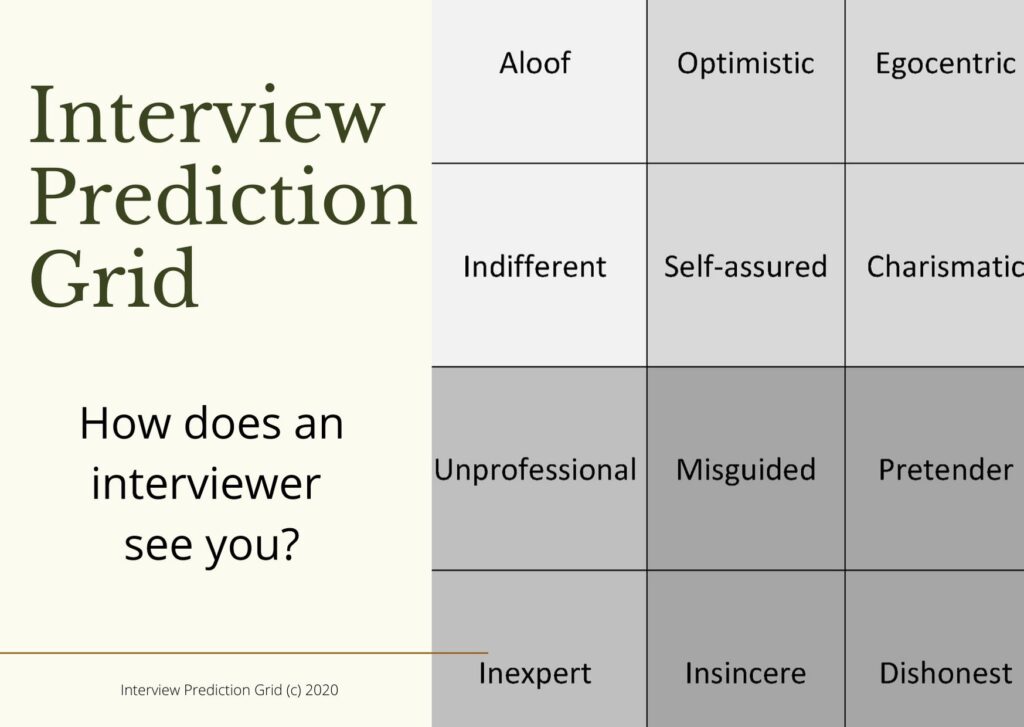If you asked a career professional what is the key criteria when assessing which positions to apply for most would answer – salary.
I would disagree. What is more important then a small pay rise is the company culture. An organsiations vision, mission and values set the culture. It is the culture, the day to day running of a business, that indirectly affects employees’ motivation levels.
Let me ask you this – is a £4000 pay rise worth leaving a job you love, to go to an organization that you feel you don’t fit in with? To go from motivation to demotivation? From workplace happiness to workplace misery?
£4000 per year is less then £77 per week – £77 to lose your workplace motivation and career happiness! This article will teach you how to uncover the organisational culture during a job interview, helping you to find the right employer based on what you deem to be important in the workplace.
Happy Career Choice
Content career professionals will work in a job sector that has a natural affinity to their personality, or will for an organization that has a mission the employee believes in. This is easily achieved by taking a career test to help understand what drives you when choosing a new career.
The second factor for career bliss is company culture. Most people fall into a career due to happenstance, but for true workplace satisfaction employees need to find a business that has a culture that links to their motivational traits.
Motivational factors can, on the face of it, look simple – do you prefer wearing a smart or casual dress? Reading this question you may ask “does workplace outfit choice even matter?”
For some people yes; a casual preference employee can feel awkward wearing a suit, or someone who feels professional when wearing a suit feels like they can’t be taken seriously in casual clothes.
Recently I was explaining the motivation of company culture to a friend who works in a professional setting. He joked, saying that people can go to work wearing beach shorts and a loud shirt, but their business won’t ever be that successful if people (employees) are always messing around.
Ever heard of innocent Smoothies? Innocent smoothies are a multimillion business who has company culture at the heart of their business ……and no, you don’t wear suits and ties in their office!
Just read their mission statement: “When we’re old and grey, we want to be able to look back and be really proud of the business we helped create. We think the best way to achieve this is by living the values that are closest to our hearts. Our five values reflect what we are, how we do things, and where we want to be. They hang above every loo in the building so we get to look at them every day.”
How Can You Predict the Company Culture?
In the job interview, you can easily gain an insight into the culture of the business. Vision and mission statements are a good start but not all businesses truly believe in their statements creating a conflict between the face of the organization and the day to day business operations.
Company culture comes down to 3 key elements; the day to day working environment, conflict resolution, and employee engagement. Each of these elements can be discussed in the job interview, helping an applicant make the right choice when offered multiple job offers.
Job Interview Questions for Company Culture
The questions below can be asked throughout the job interview, at the appropriate time, or during the final section of the interviewer when candidates are given the opportunity to ask some questions of their own.
Day to day working environment
Interview Question 1 – how are staff successes celebrated by the organisation?
Interview Question 2 – how do managers keep employees supported?
Interveiw Question 3 – can employees work from home?
Interveiw Question 4 – how manay managers use to work in team poistions?
Interview Question 5 – do you support staff to taker up voluntary positions during work time?
Conflict resolution
Interveiw Question 6 – how are key company decsions that affect teams made?
Interview Question 7 – are there any conflicts of interest across any departments?
Interview Question 8 – what is the approach to resolve anyconflict?
Interview Question 9 – how do senior leaders and stakeholders engage together?
Interview Question 10 – how is employee feedback collected?

Employee engagement
Interview Question 11 – what is the average duration of an employee working for this firm?
Interveiw Question 12 – describe an normal day for you?
Interveiw Question 13 – how much staff development is on offer?
Interview Question 14 – what is your proudest achievement while working for the organization?
Interview Question 15 – how can the company improve in terms of a supportive environment?
Job Interview Advice















